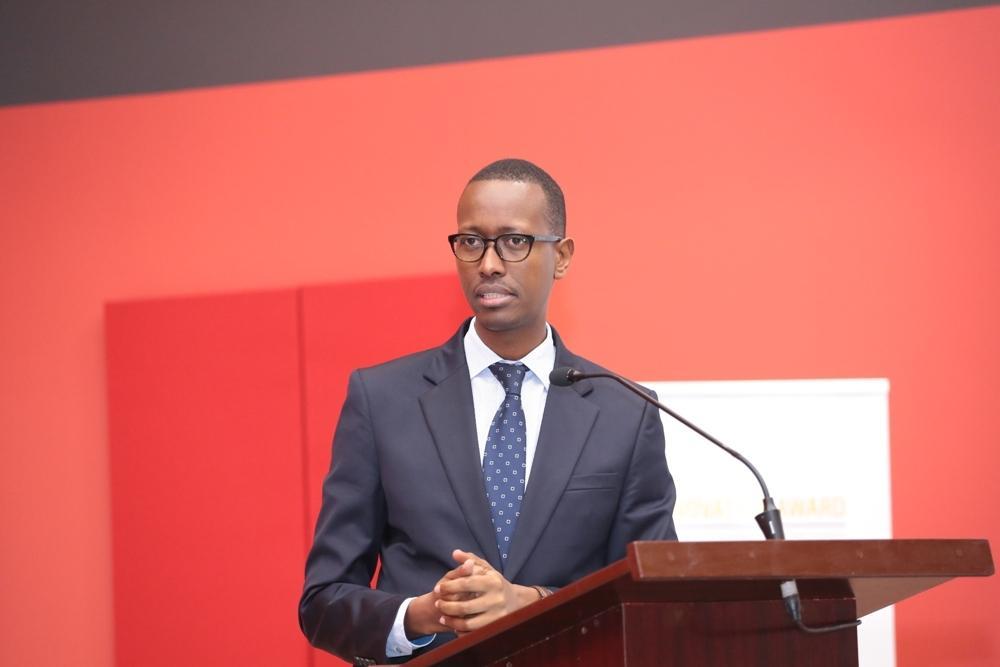Africa-Press – Rwanda. In a move to accelerate digital transformation, the newly appointed Chief Executive Officer of Rwanda Information Society Authority (RISA), Antoine Sebera, will place Artificial Intelligence (AI) and cyber security at the core of national development.
Appointed on July 16, Sebera takes charge at RISA with a wealth of experience spanning over 17 years across government, private sector, and academia, both in Rwanda and internationally.
“My mission is clear; to accelerate the government’s digital agenda, deepen innovation, and ensure inclusive access to technology across the nation,” Sebera said. “AI and cyber security will be strategic priorities among others.”
He believes AI has the power to revolutionize public service delivery, improve agricultural productivity, optimize healthcare systems, and enhance digital education. Under his leadership, the country is expected to create a supportive environment for AI adoption across public and private sectors, leveraging data and machine learning tools to inform decision-making and streamline operations.
As Rwanda embraces smart technologies, the digital frontier brings new vulnerabilities. Recognizing this, Sebera has committed to reinforcing cyber security infrastructure. Plans are underway to integrate more public institutions with the Public Key Infrastructure (PKI) system, establish comprehensive backup and disaster recovery protocols, and modernize network security frameworks.
The country’s strategic plan specifies that cyber security compliance is also expected to rise to 95% across critical public institutions, thanks to investments in training and stronger regulations under the National Cyber Security Agency and Rwanda Computer Emergency Response Team.
These initiatives aim to ensure data integrity, build public trust in digital services, and enhance Rwanda’s resilience to cyber threats.
Sebera’s track record in ICT infrastructure is extensive. As former CEO of Broadband Systems Corporation (BSC), he oversaw the development of Rwanda’s fiber optic backbone, now stretching over 21,847 kilometres and played a leading role in the implementation of Kigali Metropolitan Network. These projects laid the groundwork for Rwanda’s impressive 4G coverage and expanding internet access.
As RISA’s Chief Innovation Officer, he championed projects like the Government Smart Administration System (GSAS), which enables paperless workflows, and the Mbaza chatbot; an AI-powered tool used during the COVID-19 pandemic.
‘Serve with integrity, dedication’
Under his leadership, Rwanda will scale up existing digital infrastructure while addressing gaps in connectivity, particularly in rural and remote communities. By expanding data centers, reducing the cost of communication, and improving system interoperability.
“My aim is to promote digital inclusion for all Rwandans and make sure the country achieves 100% of government services accessible online by 2029,” he emphasized.
The institution he leads will play a role in implementing the 2024-2029 strategic plan including building a digitally literate, skilled workforce, training 500,000 individuals in advanced ICT skills, introducing basic coding to one million people, and ensuring that 100% of citizens over age 15 have at least basic digital literacy by 2030.
The strategy also plans to boost Rwanda’s innovation ecosystem by supporting local entrepreneurs, especially youth and women-led tech startups.
The country’s goal will be to develop 50 new digital applications using emerging technologies, create 50,000 new digital jobs and enhance competitiveness on the global tech stage.
Rwanda also plans to roll out the Single Digital Identification System (SDID) for all citizens, deploy 10 smart city solutions, and avail data maturity level 5 in at least 10 public institutions in the next five years.
In his message on X, Sebera expressed his gratitude to President Paul Kagame for the trust placed in him, pledging to “serve with integrity, dedication, and excellence.”
Sebera completed his primary and secondary education in Lubumbashi, in DR Congo, with a focus on mathematics and physics. He later earned a Bachelor of Science in Computer Science and went on to pursue a Master of Science in Computer Science and Software Engineering at the then National University of Rwanda, in Huye.
For More News And Analysis About Rwanda Follow Africa-Press






